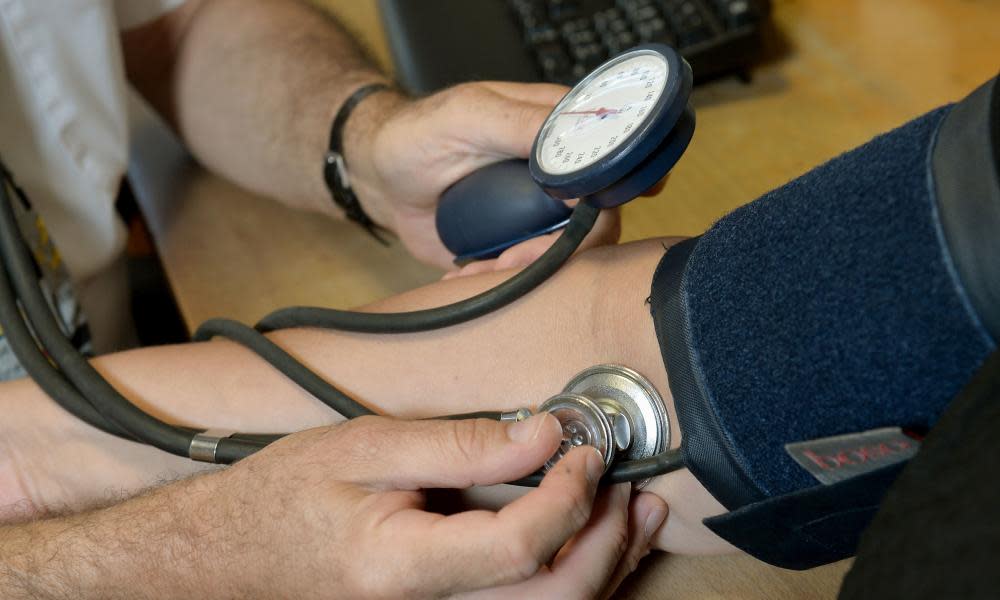Western lifestyles pose risk to migrants' health, says WHO report

Western culture and society pose more health risks to migrants and refugees than they do to host nations, according to a World Health Organization study.
The first report on refugee and migrant health in the west by WHO Europe suggests new arrivals are at risk of falling ill while in transit to another country, but face further dangers when they arrive in a host nation because of unhealthy living conditions, poor diet and the obesity epidemic.
The report on the health of refugees and migrants in the WHO European region says they do not transmit diseases or place a disproportionate burden on healthcare systems, and calls on countries to make decisions about providing services to migrants based on facts, rather than politics or prejudice.
Dr Santino Severoni, the coordinator of public health and migration for WHO Europe, said: “This report is a wonderful opportunity to diffuse false myths, misperceptions and negative narrative.
“Health is very politicised and used as a tool of fear, but this report has very solid facts and data that is coming from our member states.”
According to the report, international migrants make up 10% (90.7 million) of the population in the WHO European region. Just over 7% are refugees. “In some European countries, citizens estimate that there are three or four times more migrants than there really are,” it said.
Evidence collected by the WHO suggests migrants and refugees are less likely to be affected by non-contagious diseases such as cancer, stroke or heart disease, but their risk of developing such illnesses increases when they move to more developed countries, particularly as they are often living in poor conditions.
While refugees and migrants are more vulnerable to infectious diseases when in transit from their home countries, the proportion with tuberculosis or HIV varies widely. WHO Europe said: “Despite the widespread assumption to the contrary, there is only a very low risk of refugees and migrants transmitting communicable diseases to their host population.”
The report implicitly criticises the UK and other nations that charge some migrants and refugees for healthcare by suggesting the best way to protect the health of those in host nations and new arrivals is to provide universal, free healthcare.
In December, representatives of more than 70,000 doctors urged ministers to suspend regulations that force hospitals to charge overseas visitors upfront for NHS care, voicing concern about pregnant women being denied care and children missing out on treatment for serious illnesses.
Rules brought in in 2015 and 2017 under the “hostile environment” immigration policy specify when overseas visitors should be charged for receiving NHS care.
Dr Zsuzsanna Jakab, the WHO regional director for Europe, said: “As migrants and refugees become more vulnerable than the host population to the risk of developing both noncommunicable and communicable diseases, it is necessary that they receive timely access to quality health services.
“This is the best way to save lives and cut treatment costs, as well as protect the health of the resident citizens.”
The report also found:
Refugees and migrants are at lower risk of all forms of cancer, but are more likely to be diagnosed at an advanced stage.
Depression and anxiety are more common among refugees and migrants than host populations.
Unaccompanied minors are vulnerable to sexual exploitation and experience higher rates of depression and symptoms of post-traumatic stress disorder.
Male migrants experience significantly more work-related injuries than non-migrant workers.
The report’s authors called on European nations to provide good-quality, affordable healthcare to all migrants and refugees regardless of their legal status, and make health systems culturally and linguistically accessible.
Severoni said: “Countries tend to use costs as a justification of limiting or delaying healthcare access to newcomers or providing emergency access only. But this is not cost effective, early identification costs less than delaying until absolutely necessary hospital treatment.”

 Yahoo News
Yahoo News 
